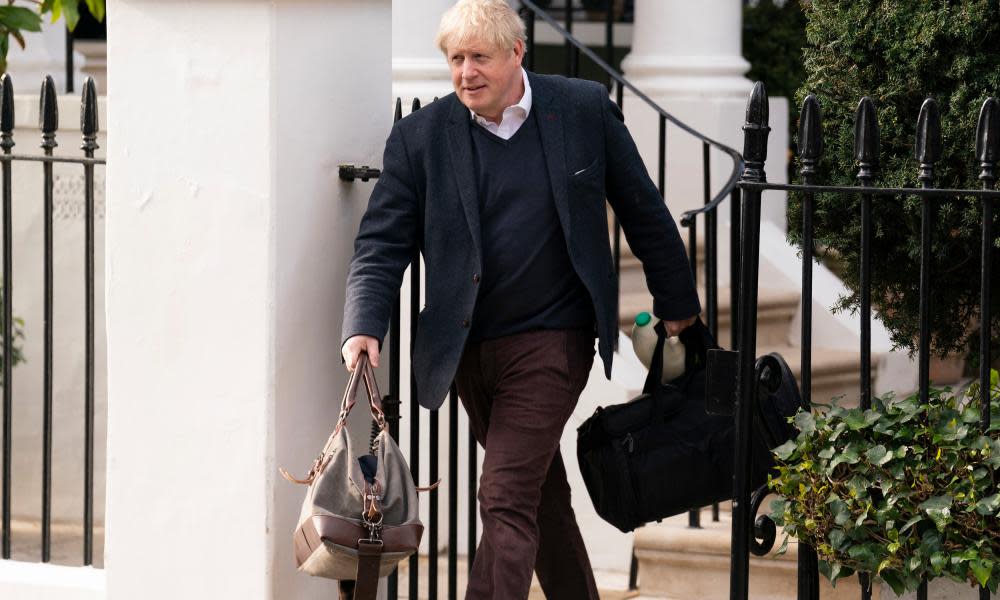Partygate: Johnson should reject any finding that he broke rules, say allies

Boris Johnson should refuse to accept the outcome of the privileges committee investigation if it concludes that he intentionally misled the Commons over the Partygate scandal, his allies have said.
Some of the former prime minister’s supporters believe he should reject the cross-party group’s findings if they decide, based on written evidence and a fractious three-and-a-half-hour evidence session on Wednesday, that he broke strict parliamentary rules.
MPs on the committee denounced his “flimsy” explanations and suggested he had wrongly interpreted the Covid guidance, heightening the expectation that they will impose sanctions on Johnson for “recklessly” misleading the Commons.
However, the Conservative peer Stephen Greenhalgh, who was given his peerage by Johnson after serving under him at London City Hall, said he had seen “nothing” in the evidence that demonstrated he had knowingly misled parliament.
“I personally think he set out that there’s no way he knowingly misled parliament and therefore the committee should be exonerating him,” he told ITV’s Good Morning Britain show. “I don’t see why he should accept the findings of a politically charged committee if they haven’t got the evidence to prove that he knowingly misled parliament.”
Another ally, a senior Tory MP, suggested that the committee would “upset” the backbenches if it recommended a sanction for Johnson that could ultimately lead to him facing a byelection. “Boris wouldn’t have much choice but to accept it, but he should make it absolutely clear that he doesn’t agree with it,” they added.
At the end of the hearing on Wednesday, Johnson declined to give the committee any guarantee that he would accept their conclusions.
Asked if he would accept the characterisation of the inquiry as a “witch-hunt or a kangaroo court”, he said he would “deprecate the terms”, but added: “I will wait to see how you proceed with the evidence you have. I will study your conclusions from the evidence … I believe if you study this evidence impartially, you will come to the conclusion that I’ve given.”
However, it is understood that it is not Johnson’s position that he would not accept a sanction if one was recommended by the committee and backed by the Commons. Rishi Sunak has indicated that he would give Tory MPs a free vote.
One friend of Johnson said the former prime minister was not prejudging the outcome of the inquiry. “We’re very much looking forward to reading the committee’s findings. When they arrive, we will study them,” they said. He is expected to be sent the findings two weeks before they are published.
His lawyers are planning to write to the committee after the Commons session to encourage them to publish all the evidence they have relied on during the inquiry that has not yet been put in the public domain. The committee has so far refused to do so, saying they have a responsibility to protect the identity of witnesses.
Johnson’s team will also query how dependent the inquiry was on evidence accumulated during the course of the senior civil servant Sue Gray’s investigation, and other technical points, including the assurances he says he was given by senior civil servants that all the lockdown gatherings were within the rules.
A committee spokesman said: “The members of the privileges committee are MPs who have been appointed to this role by the house. The decision to carry out this inquiry was not taken by the privileges committee but by the House of Commons as a whole.
“The house unanimously passed a motion to refer this matter to the committee of privileges on 21 April. The committee can only consider matters referred to it by the house, and is duty bound to proceed with the inquiry following the house’s instruction unless and until it is instructed otherwise.”

 Yahoo News
Yahoo News 
